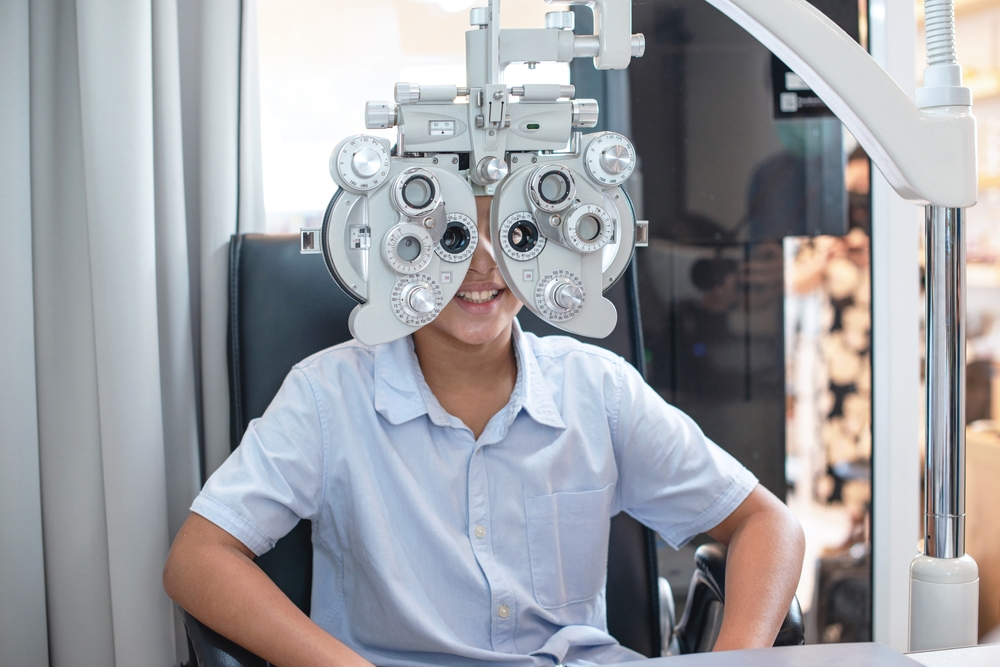
When it comes to maintaining healthy vision, regular eye exams are of utmost importance. An eye exam is not just about checking your eyesight; it is a comprehensive evaluation of your ocular health. During an eye exam, an optometrist will thoroughly examine your eyes, looking for signs of any potential issues or conditions that may affect your vision.
What is a Comprehensive Eye Exam?
A comprehensive eye exam is a thorough evaluation of your vision and ocular health. It involves a series of tests and assessments designed to assess your visual acuity, eye coordination, and overall eye health. This type of exam goes beyond a simple vision test and is recommended for individuals of all ages, from children to seniors. During a comprehensive eye exam, your optometrist will perform various tests to evaluate the health of your eyes and identify any underlying conditions that may affect your vision.
Tests Involved in a Comprehensive Eye Exam
A comprehensive eye exam consists of several tests and assessments to evaluate different aspects of your vision and ocular health. Some of the common tests involved in a comprehensive eye exam include:
- Visual Acuity Test: This test measures how well you can see at various distances. You will be asked to read letters or numbers from a chart to determine your visual acuity.
- Refraction Test: The refraction test determines your exact prescription for glasses or contact lenses. Your optometrist will use different lenses and ask you to choose the one that provides the clearest vision.
- Eye Coordination and Focus Tests: These tests assess how well your eyes work together and how easily they can switch focus between near and distant objects. Poor eye coordination can lead to eye strain and difficulty with tasks such as reading or driving.
- Ocular Health Evaluation: During a comprehensive eye exam, your optometrist will examine the internal and external structures of your eyes. This may involve the use of specialized equipment to assess the health of your retina, optic nerve, and other structures.
Understanding Refractive Errors
Refractive errors are common vision problems that occur when the shape of your eye prevents light from focusing directly on the retina. In myopia, close objects appear clear, while distant objects appear blurry. It occurs when the eyeball is too long or the cornea is too curved, causing light to focus in front of the retina instead of directly on it.
Hyperopia is the opposite of myopia. Distant objects may appear clear, but close objects may be blurry. It occurs when the eyeball is too short or the cornea is too flat, causing light to focus behind the retina.
Astigmatism occurs when the cornea or lens has an irregular shape, causing blurred or distorted vision at all distances. It can occur in combination with myopia or hyperopia.
Presbyopia is an age-related condition that affects the ability to focus on near objects. It occurs due to the natural aging process of the lens in the eye, which becomes less flexible over time.
Common Eye Conditions Detected During an Eye Exam
Regular eye exams are crucial for the early detection and treatment of various eye conditions. Glaucoma is a group of eye conditions that can cause damage to the optic nerve, leading to vision loss. It often has no early symptoms, making regular eye exams essential for early detection and treatment.
Cataracts occur when the lens of the eye becomes cloudy, leading to blurred vision. Regular eye exams can help identify cataracts early on, allowing for timely intervention and improved quality of life.
Macular degeneration is a progressive eye disease that affects the central part of the retina, leading to a loss of central vision. Regular eye exams enable early detection and intervention, which can help slow down the progression of the disease.
Diabetic retinopathy is a complication of diabetes that affects the blood vessels in the retina. Regular eye exams are crucial for individuals with diabetes to monitor and manage their eye health effectively.
The Benefits of Regular Eye Exams for Maintaining Healthy Vision
Regular eye exams offer numerous benefits for maintaining healthy vision and overall eye health. Eye exams can detect potential issues early on, allowing for timely treatment and intervention. Early detection is crucial for preventing vision loss and managing eye conditions effectively.
Regular eye exams ensure that your prescription for glasses or contact lenses is up to date. This helps to maintain optimal vision and prevent eye strain or discomfort. Additionally, these exams enable your optometrist to monitor the health of your eyes over time. This is particularly important for individuals with certain risk factors or pre-existing eye conditions.
Why Choose Designer Optical of Parkchester for Your Eye Exams
When it comes to your eye health, choosing a trusted and experienced optometrist is crucial. At Designer Optical of Parkchester, we prioritize your vision and overall eye health. Our eye care team is dedicated to providing comprehensive eye exams that assess your visual acuity, eye coordination, and ocular health. With state-of-the-art equipment and a commitment to personalized care, we strive to deliver the highest standard of eye care to our patients. Trust Designer Optical of Parkchester for your eye exams and experience the difference in quality and professionalism.
Schedule your comprehensive eye exam and invest in the well-being of your vision and eye health, visit Designer Optical of Parkchester at our office in Bronx, New York, or call (347) 507-3166 to book an appointment today.






